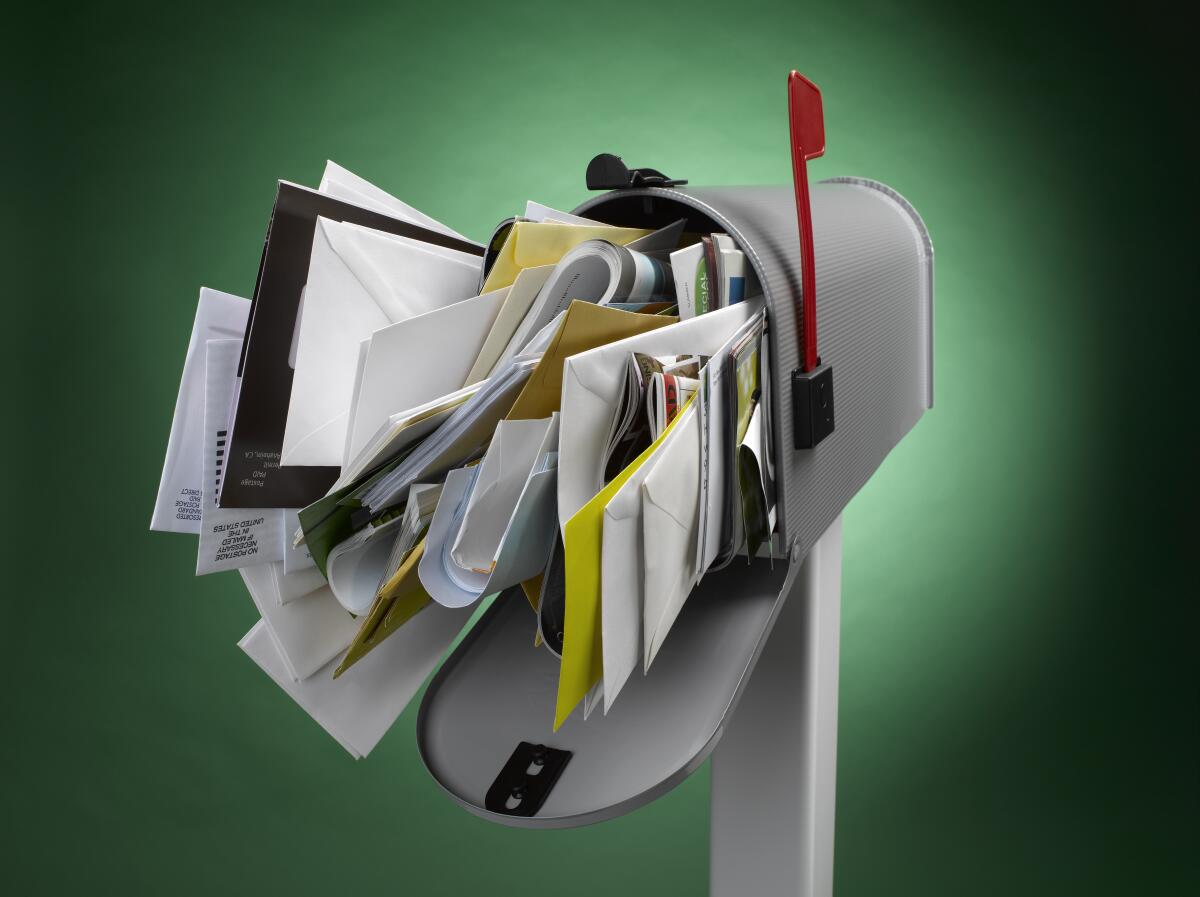Worried about identity theft? What to do to minimize your risk

- Share via
I’m a victim of identity theft. Thieves stole my wallet out of my purse and were able to find out everything else they needed to steal my identity online. They exploited a system that the government, law enforcement and financial institutions aren’t doing much to improve.
But there are quick and easy steps you can take that will decrease the chances of your identity being stolen, and help mitigate the damage if it is.
Freeze your credit
It takes 15 minutes to do this with the three major credit bureaus (Equifax, TransUnion and Experian), and even less time to unfreeze when you’re applying for a loan. It is free to freeze and unfreeze your credit — you don’t need any paid “upgrades.”
Review your credit report at least once a year
You are eligible to get a free copy of your credit report from each bureau annually. Go through it and make sure everything looks right. Visit AnnualCreditReport.com to request yours.
A stolen wallet precipitates a reporter’s years-long fight against identity thieves — and a system that doesn’t care and won’t help.
Check your passwords
Make sure your sensitive accounts — things like your email and your bank accounts — have strong, unique passwords. If you use the same password everywhere, one account gets hacked and your data are leaked, then all of your accounts are vulnerable. PC Magazine, Wired, and CNET all have recommendations for password managers that make it so you don’t have to remember every single one. Check Have I Been Pwned to see which passwords have already appeared in data breaches.
Add two-factor authentication everywhere you can
Yes, it is annoying to spend an extra 10 seconds waiting for a text or authentication alert when you log in to your email or bank account. But it’s the best way to secure them. Having two-factor on my Gmail account meant the people who stole my identity were never able to fully access my bank accounts or credit cards.
Is identity theft insurance worth the expense? What do identity theft protection companies such as LifeLock and Aura do? Here’s what to consider.
Sign up for alerts from your banks
Log in to your bank account and credit card accounts and figure out how to add text or email alerts so you’ll be notified immediately if someone tries to open a new one.
Never give anyone your bank password or verification code
Anyone asking you to tell them your password or a code you were just texted is trying to get it to access your account.
As it is, our financial and law enforcement systems don’t do much to prevent identity theft. Nor do they offer much help to victims. Some policy and societal changes could help.
Review your bank statements regularly
See any transactions you don’t recognize? Call your bank right away to investigate.
Opt out of prescreened credit card offers
These can be a data gold mine for thieves. Shred any you do receive before tossing them. Visit optoutprescreen.com to stop them.
Don’t carry your Social Security card in your wallet
Thieves probably can still get your Social Security number in other ways, thanks to countless data breaches. But at least don’t give it to them.
If you’re a victim of identity thieves or a data hack, you need to act quickly. Here’s what to do to protect yourself.
Retrieve mail promptly, and stop it if you’re going out of town
Stolen mail is one of the easiest ways for thieves to get your information. The people who stole my identity were arrested with a bunch of stolen mail and tools to access mailboxes in their car. Minimize opportunities for your mail to be stolen, especially if you’re expecting any sensitive financial documents like a new debit card or checkbook.
Limit your digital presence
Be thoughtful about what you share. Does the website that sells your favorite protein powder need to know your real birthday? Have you changed your social media profile settings as much as possible, or can anyone see what your hometown is? If you want to take this to the next level, use a service like DeleteMe, which removes your personal information from data aggregators (for a price).
About The Times Utility Journalism Team
This article is from The Times’ Utility Journalism Team. Our mission is to be essential to the lives of Southern Californians by publishing information that solves problems, answers questions and helps with decision making. We serve audiences in and around Los Angeles — including current Times subscribers and diverse communities that haven’t historically had their needs met by our coverage.
How can we be useful to you and your community? Email utility (at) latimes.com or one of our journalists: Jon Healey, Ada Tseng, Jessica Roy and Karen Garcia.
More to Read
Inside the business of entertainment
The Wide Shot brings you news, analysis and insights on everything from streaming wars to production — and what it all means for the future.
You may occasionally receive promotional content from the Los Angeles Times.














